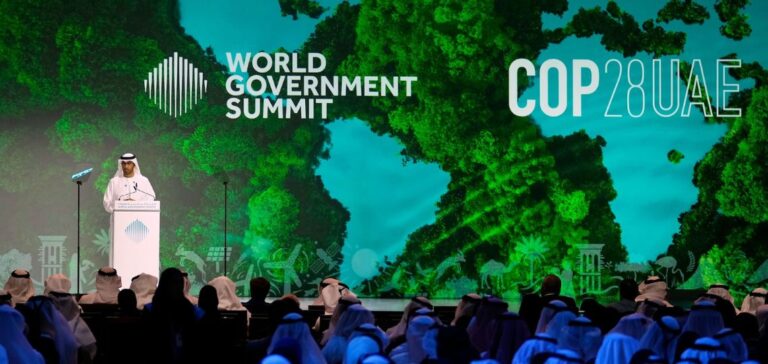France is working to find an exit date from the oil era as part of negotiations ahead of the next UN climate conference in Dubai at the end of the year, the French Minister for Energy Transition said on Monday.
France unveils oil phase-out target: Agnès Pannier-Runacher at the forefront of a major climate milestone
“We’d like to see commitments from the oil and gas sector to reduce greenhouse gas emissions, with positions we’ll be pushing for, and probably a target for phasing out oil, with a deadline,” said Minister Agnès Pannier-Runacher at a meeting organized by the Association of Energy Journalists.
The minister didn’t give any further details on the deadline, but she was relying on comments made a few days earlier by French President Emmanuel Macron.
“France will pursue a very clear agenda with deadlines for phasing out oil and coal, because that’s where we need to concentrate our efforts,” declared the French head of state in his address to ambassadors on August 28.
“The President of the Republic wants to launch a strong initiative to get rid of oil, as he announced to the ambassadors. The aim is to get our European neighbors and all the other ambitious climate countries on board as far as possible, with a view to COP28,” Agnès Pannier-Runacher’s office told AFP on Monday.
Crucial battle over the end of fossil fuels: Issues and opposition at COP28 in Dubai
The coming months will be marked by crucial international climate negotiations, culminating in a battle over the end of fossil fuels at COP28 in Dubai from late November to early December. The rate of decline in their use, and even the possibility of a definitive phase-out, are the subject of fierce opposition between countries. The European Union, which is negotiating on behalf of its member states, including France, would like to see “unabated” fossil fuels, i.e. those not backed by carbon capture and storage systems, eliminated well before 2050.
On the production side, the oil industry is “throwing it back in our faces” that it is “obliged to continue operating oil wells because demand is still there”, the Minister summarized, before adding:
“We have to be able to show, on the demand side, that we have a trajectory for getting out of oil”.
“If you want to reduce greenhouse gas emissions, you have to agree to talk with the countries that emit the most (greenhouse gases), and to agree to talk with the countries that produce the most fossil fuels, because that’s the only way to get approval, with varying degrees of enthusiasm, for greenhouse gas emission commitments in their sector”, said the Minister.






















